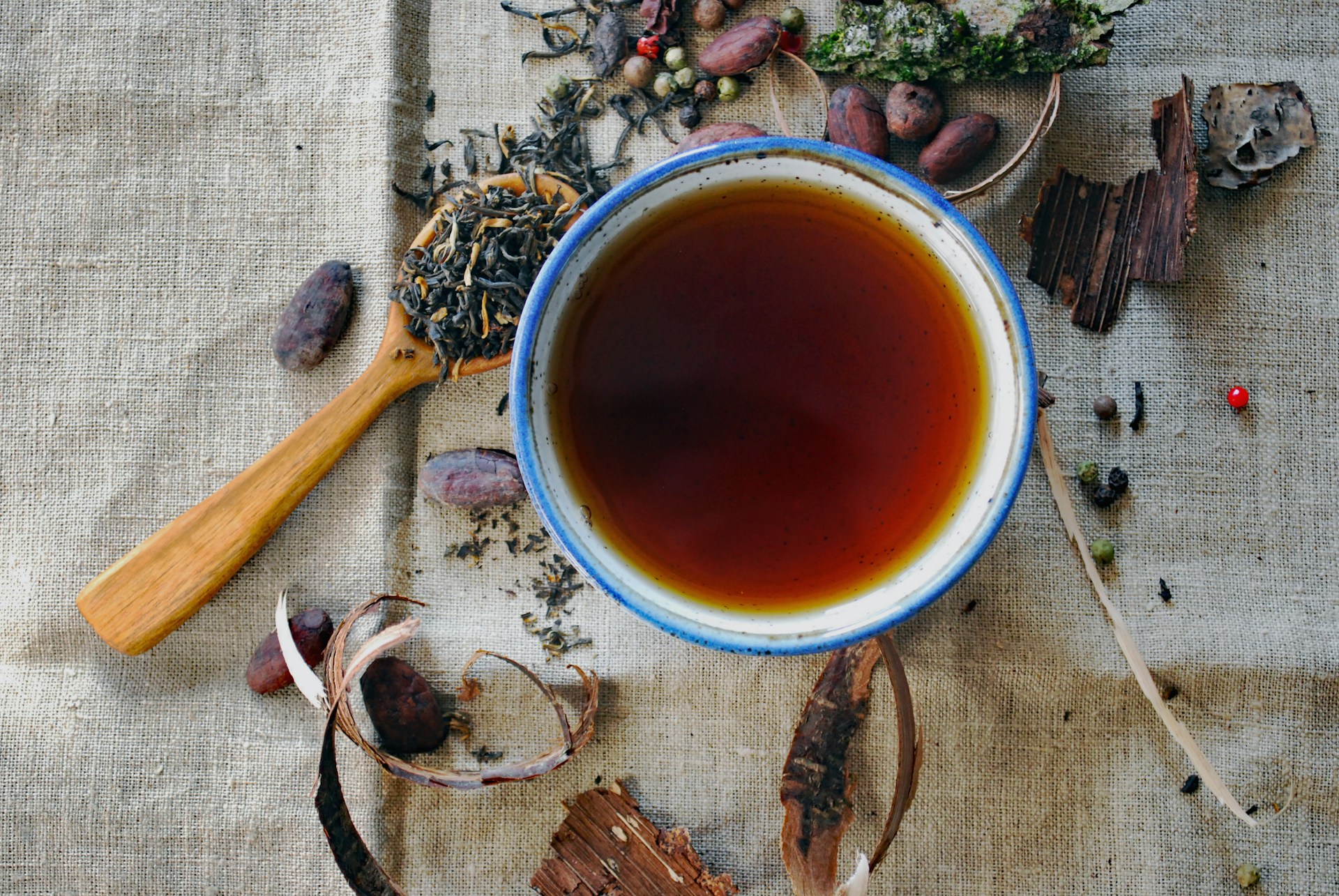
Tea is one of the most widely consumed beverages around the world, known for its soothing qualities and a range of health benefits. But did you know that drinking tea regularly can also have a positive impact on your mental health? Whether you’re sipping green tea for its calming effects or enjoying a cup of chamomile to relax, tea can play an important role in supporting mental well-being. In this article, we’ll explore the surprising mental health benefits of drinking tea regularly and how it can help reduce stress, anxiety, and improve overall mood.
1. Reduces Stress and Anxiety
One of the most immediate benefits of drinking tea is its ability to reduce stress and anxiety. Many types of tea contain natural compounds that promote relaxation and calm the mind, making it a perfect drink for unwinding after a long day.
How It Works:
- L-theanine, an amino acid found in green tea and black tea, is known to reduce anxiety and promote relaxation without causing drowsiness. It works by increasing alpha brain waves, which are associated with a relaxed, yet alert, mental state.
- Herbal teas like chamomile and lavender contain calming properties that help to soothe the nervous system, reducing feelings of stress and anxiety.
Best Teas for Stress Relief:
- Green tea: Rich in L-theanine, it helps reduce stress and keeps you feeling calm.
- Chamomile tea: Known for its calming effects, it’s perfect for easing anxiety and promoting relaxation.
- Lavender tea: This fragrant herbal tea helps calm the mind and body, reducing tension.
2. Improves Mood and Reduces Symptoms of Depression
Regular tea consumption has been linked to improved mood and a reduction in symptoms of depression. Certain teas can help stimulate the production of serotonin and dopamine—neurotransmitters that play a key role in regulating mood and emotions.
How It Works:
- The antioxidants and polyphenols found in tea, particularly green tea, help protect the brain from oxidative stress and inflammation, which can contribute to mental health issues like depression.
- Drinking tea can also encourage the production of serotonin and dopamine, often referred to as “feel-good” chemicals, which help improve mood and promote feelings of well-being.
Best Teas for Mood Enhancement:
- Green tea: Contains powerful antioxidants like EGCG (epigallocatechin gallate) that support brain health and improve mood.
- St. John’s Wort tea: This herbal tea is often used to alleviate symptoms of mild to moderate depression and mood swings.
- Lemon balm tea: Known for its uplifting effects, lemon balm tea helps improve mood and ease feelings of sadness or irritability.
3. Enhances Focus and Concentration
While coffee is often the go-to drink for a quick energy boost, tea offers a more balanced approach to improving focus and concentration. The combination of caffeine and L-theanine in tea provides a calm yet focused mental state, without the jitters associated with coffee.
How It Works:
- L-theanine not only promotes relaxation but also enhances cognitive function by boosting brain activity and improving attention span.
- The small amount of caffeine in tea stimulates the brain without overstimulation, allowing for increased focus and mental clarity.
Best Teas for Focus:
- Matcha: A type of powdered green tea that provides sustained energy and focus thanks to its high concentration of L-theanine and caffeine.
- Black tea: The caffeine content in black tea helps boost concentration and alertness, while the L-theanine ensures a smoother, longer-lasting energy boost.
- Peppermint tea: While caffeine-free, peppermint tea has been shown to improve concentration and cognitive performance due to its refreshing aroma.
4. Promotes Relaxation and Better Sleep
Struggling with sleepless nights? Certain herbal teas can help promote relaxation and improve sleep quality. A warm cup of tea before bedtime can calm your mind and body, preparing you for a restful night’s sleep.
How It Works:
- Herbal teas like chamomile, lavender, and valerian root have natural sedative effects that help relax the nervous system and promote sleep.
- These teas are caffeine-free, making them the perfect choice for winding down in the evening without the risk of disrupting your sleep cycle.
Best Teas for Sleep:
- Chamomile tea: Often used as a natural remedy for insomnia, chamomile helps relax the mind and body, promoting restful sleep.
- Valerian root tea: This herbal tea has been used for centuries to treat sleep disorders and anxiety. It promotes relaxation and eases the transition into sleep.
- Lavender tea: Known for its calming scent, lavender tea helps reduce stress and anxiety, making it easier to fall asleep.
5. Supports Brain Health and Reduces the Risk of Cognitive Decline
Long-term tea consumption has been linked to better brain health and a reduced risk of cognitive decline as we age. Studies suggest that drinking tea regularly can help protect against diseases like Alzheimer’s and dementia.
How It Works:
- The antioxidants in tea, particularly catechins and flavonoids, help protect brain cells from oxidative stress and inflammation, both of which contribute to cognitive decline.
- Some studies have shown that green tea can enhance memory and learning by promoting the formation of new brain cells and strengthening the connections between them.
Best Teas for Brain Health:
- Green tea: Its high concentration of antioxidants helps support long-term brain health and protects against neurodegenerative diseases.
- Ginkgo biloba tea: Known for improving cognitive function and memory, ginkgo biloba is often used to support brain health in older adults.
- Rosemary tea: This aromatic herb has been shown to improve memory retention and cognitive performance.
Conclusion
Drinking tea regularly offers a variety of surprising mental health benefits, from reducing stress and anxiety to improving focus and mood. Whether you’re looking for a natural way to calm your mind, boost your mood, or support long-term brain health, tea can be a powerful ally in your mental wellness routine. So, the next time you brew a cup of tea, remember that it’s not just a soothing drink—it’s a way to nurture your mental health, too.



